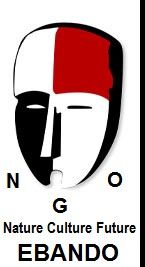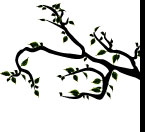 |
||||
PYGMIES : NOTES Painting one’s face means relaxing, making beautiful. This makes the forest rejoice They have all they need. Crime and war are unknown. Cooperation to catch game. Each family makes a net and maintains it. Men tend the nets, women (beaters) chase the animals into the nets.
They have dogs for pets.
Surplus of meat may lead to keeping a small animal as a pet, till they get hungry again. Mirrors are unknown. Friends app1y make-up to each other. A mixture of forest fruits and milk makes the make-up. No two designs are alike among the women’s make-up. This fosters creativity. Pygmy man is not involved in the birth of children. Children enter the womb of forest when wrapped in a bark cloth. Every man is father. every woman mother. Man and women play with children. People will break away if food is scarce. Monogamy generally prevails. Family members sleep together. One cannot be truly alone.
Sangu killed and elephant. Has high status because of this. Meat stored in baskets hanging on the wall. (it is smoked). The tire is always burning. Carry burning 1ogs with fire in it. Do not want to bring in fire-makinq methods from the farmers. Playing passes knowledge from one generation to the next. Hoop dance teaches Children skills needed for adult life. Pygmies value cleanliness. Short hair reduces lice. Bathe as often as possible Boys learn to hunt at young age (two). Butterflies, toads. Snakes. Horned viper: one of the most poisonous: good food. Poison arrows. A leaf guides the arrow. Plants, insects, and berries make the poison. layers. It has to be applied in Colobus monkey is a favorite food source. Some cultivate foods and arrows with iron tips for jungle food and medicinal plants. Pygmies have to agree to farmers traditions to make their gods happy. Marriage and circumcision. Rituals. Painting, rubbing and oiling (palm oil) the body. Decorated bride. Beating the bride is to ward off evil spirits. Circumcision: leaf with herbal mixture and salt bind the wound. Switching distracts the mind from the pain. Pygmies dance to thank the villagers for their hospitality. Hunting dances remind the women that the forest is the mother of them all. Egyptians called pygmies the dancers of god. Intonation of ancient Pygmy language is all that is left of their early language. Now they tend to speak Kingwana (Swahili) with an ancient Pygmy accent.
Mongongo leaf: mats, hut covering, drinking cups. pygmies overhear each others conversations, provoking laughter, sometimes. Pygmies move on a month1y basis to prevent build up of wastes Rivers provide clean water for bathing (no soap) Ta thank the forest: tires, sing, hold the forest in great reverence Army ants: attack humans too. Wounds: healing with medicinal plants. Cloth : from tree bark. Pounded with elephant tusk hammer to soften the bark cloth Dyes: each design is different. No fixed patterns.
Sangu: loner: likes to hunt a1one. Blacken faces to look like chimps so as to be less threatening to the forest animals Iko: ceremonial drink: green berries and the cola nut (cafein) stimulant in Coca Cola. No cups, so the pygmies use leaves. Drinking from the sarna leaf indicates a bonding. The meat is shared by all.
Men leave camp without farewells. Malenghe (termite hill fungus): food. They love mushrooms and honey: When meat 15 scarce: leaves fruits, nuts, wild berries, mushrooms. Vegetation gives clues as to where one can find edible roots. Marijuana is smoked when there is time: it is supplied by the villagers. Gabandu and Sangu find elephant tracks. Removing the tips of the trunk and tail removes the identity of the animal: this must be done before eating the animal. The tail is brought back to camp. No announcement: the tail is the message.. The meat i5 smoke dried to preserve it. Smoked meat loses 50% of Its weight as the liquid 15 dried. Spontaneous dancing thanks the jungle and Sangu.
Huts of those who may have recently caused a disturbance may be destroyed in the elephant dance.  |
Francis Banguet
_________
Mored MBA-SIMA




